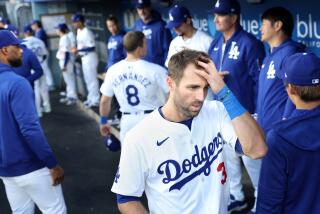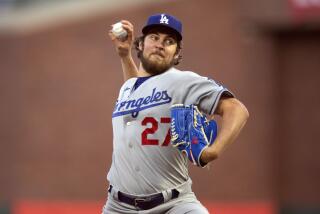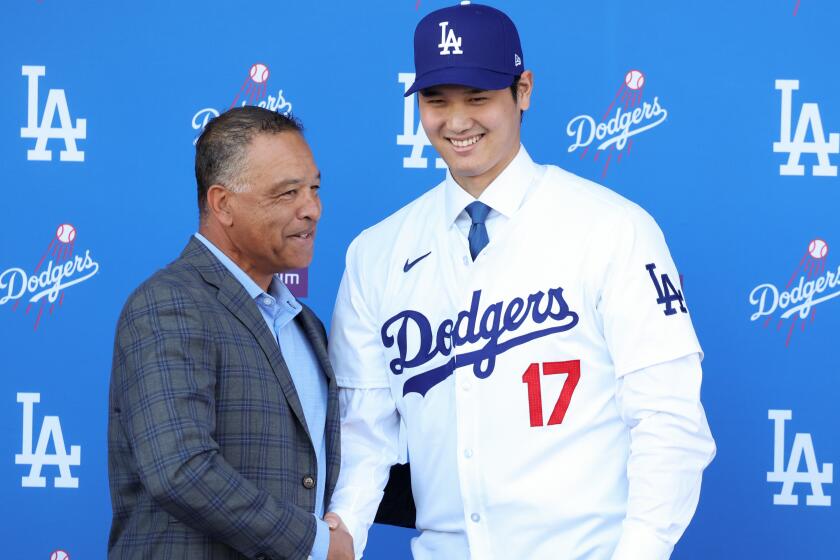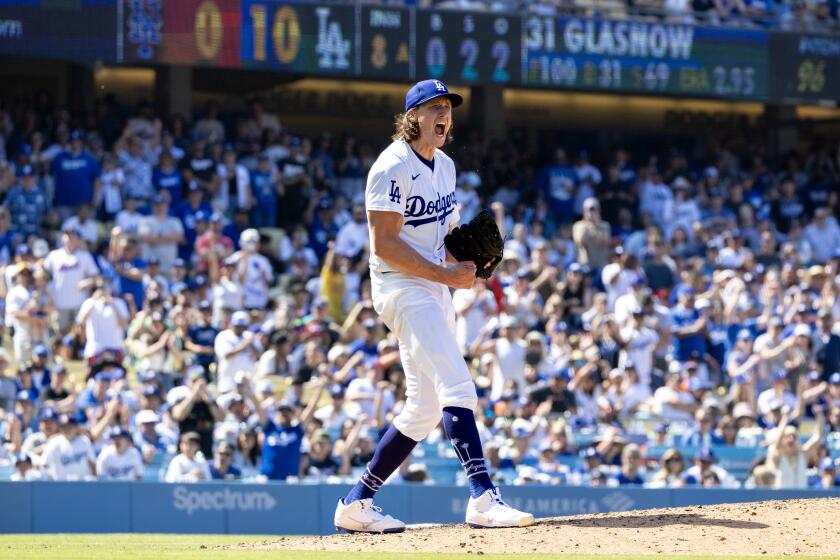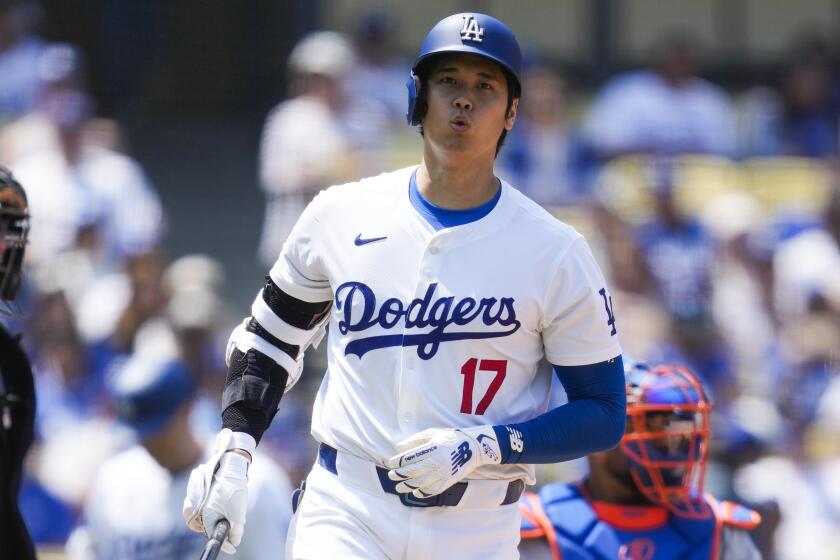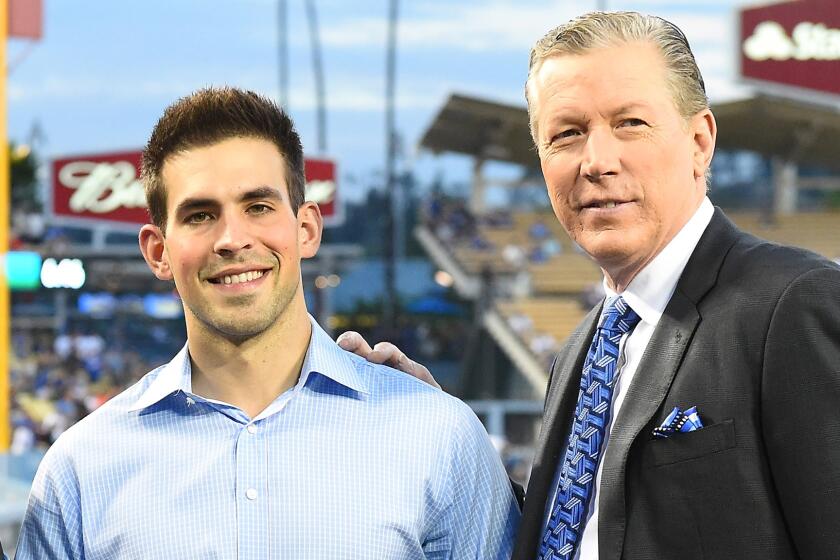For Broxton, it was case closed
Never had Russell Martin seen Jonathan Broxton the way he saw him Saturday night.
Broxton didn’t hesitate. He seemed completely sure of himself. And when he struck out Alfonso Soriano to end the game and preserve the Dodgers’ 3-1 victory over the Chicago Cubs, he did something no Dodgers pitcher had done in two decades: close out a playoff series.
“That’s the best I’ve ever seen Broxton pitch,” Martin said.
Broxton’s dominance in recording the four-out save that night -- and designated closer Takashi Saito’s troubles in Game 2 -- could force Manager Joe Torre to reconsider their roles with the National League Championship Series opening Thursday in Philadelphia.
What was previously unknown about the 24-year-old with the 100-mph fastball -- his ability to handle the big moment -- became known Saturday.
“I wanted it,” Broxton said. “I wanted it a lot.”
From his station behind home plate, Martin said he didn’t sense that Broxton had any fears or doubts. He didn’t fidget or look around.
“He just needs to let it go like he did,” Martin said. “He was a beast [Saturday]. It was fun to catch him.”
General Manager Ned Colletti smiled and shook his head.
“He went right after them,” Colletti said. “He didn’t lack confidence.”
Dealing with situations like that one was something Colletti and Broxton talked about at the end of the 2007 season, when the Dodgers finished fourth in the NL West.
“Fifty-three weeks ago, we had a great conversation,” Colletti said. “We talked about what it would take for him to be as great as he could be. We talked about competing.”
“He told me we got our butts handed to us,” Broxton said. “He said, ‘Let’s return some of the butt-whippings next year.’ ”
Broxton said Colletti’s words stayed with him throughout the winter.
Nothing came easily for Broxton this season.
He was moved from the setup to closing role in July when Saito went down with a sprained elbow ligament, but the two-month trial period had its ups and downs. Torre said that Broxton sometimes had problems with mechanics because his 300-pound frame didn’t always cooperate.
What became clear as the playoffs neared was that Torre seemed intent on making Saito his closer again.
On the day the series with the Cubs started, pitching coach Rick Honeycutt told Saito that he would be the Dodgers’ closer. Honeycutt then told Broxton that he would be pitching the eighth.
Torre denied that he lacked confidence in Broxton and Broxton said he didn’t interpret the move that way.
But when Saito entered Game 2 in the ninth inning with a 10-1 lead, he failed to get a single out. He gave up three hits and two runs and had to be replaced by Broxton, who walked the first batter he faced but didn’t let any more runs score.
It was Broxton who got the call Saturday with two outs in the eighth inning. The Cubs had cut the Dodgers’ lead from 3-0 to 3-1 and Ronnie Cedeno was on first.
Broxton admitted that the mound he climbed onto that night was a foreign place to him.
“It’s the playoffs,” Broxton said. “It’s the game-clinching one.”
Cedeno promptly stole second base, but Broxton blew away Mark DeRosa to end the inning.
Torre said he sent Broxton back out for the ninth because, unlike in Game 2, he was throwing strikes -- five of his six pitches to DeRosa were strikes.
Broxton struck out Ryan Theriot on three pitches. He forced Kosuke Fukudome to ground out to short. He ended the game by striking out Soriano on three pitches.
Though Broxton said the moment when he struck out Soriano and punched the air as teammates rushed to him was something he had long dreamed about, the flood of emotions he experienced caught him by surprise.
“I couldn’t believe the game was over,” he said. “You can’t imagine what it’s like. It was just an unbelievable feeling out there.
“Now, I want to get a World Series clincher, too.”
--
More to Read
Are you a true-blue fan?
Get our Dodgers Dugout newsletter for insights, news and much more.
You may occasionally receive promotional content from the Los Angeles Times.

